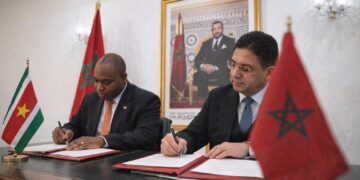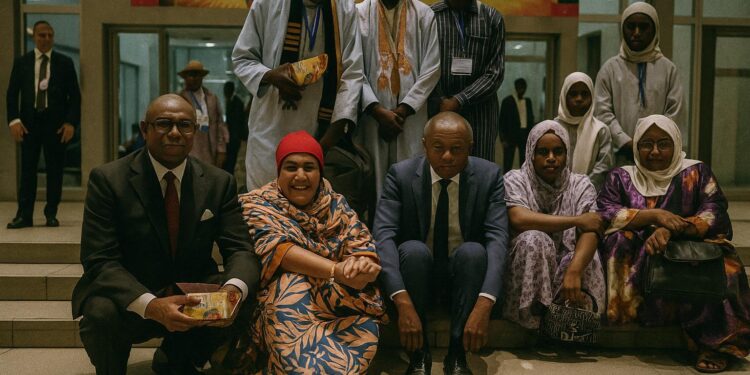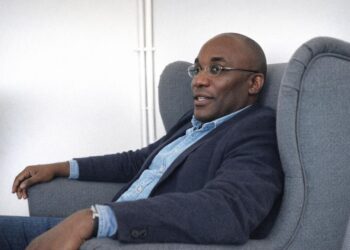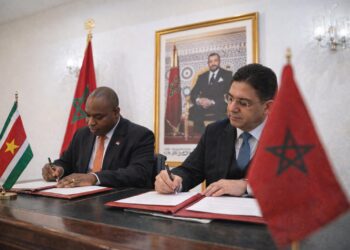A Festival Tuned to Diplomatic Pitch
The sun-drenched esplanade of the Palais des Congrès reverberated on 19 July as percussion ensembles heralded the opening of the twelfth edition of the Pan-African Music Festival, better known by its French acronym FESPAM. From its inception in 1996, the event has been more than a celebratory jamboree; it has acted as a sounding board for Brazzaville’s cultural diplomacy, highlighting the coexistence of over two hundred ethnic musical traditions inside Congo-Brazzaville’s borders and projecting a message of pan-African unity. This year, the United Nations Educational, Scientific and Cultural Organization chose to underscore its Priority Africa programme by dispatching Fatoumata Barry Marega, its Resident Representative, to the opening ceremony, while Director-General Audrey Azoulay addressed participants by video from Paris, praising national authorities for “preserving the sonic memory of the continent”.
Priority Africa: Beyond Slogans
UNESCO’s policy framework designates the African continent as a laboratory for new heritage approaches. According to the organisation’s 2022-2029 Medium-Term Strategy, the cultural and creative industries are expected to generate close to ten million jobs across Africa over the next decade. FESPAM, staged from 19 to 26 July and supported by the Congolese Ministry of Culture, neatly aligns with that ambition. In her remarks, Ms Azoulay recalled that “music embodies a universal language that transcends conflict and fosters inclusive societies”. By sequencing masterclasses, academic colloquia and live performances in a single programme, the festival foregrounds that vision, while Brazzaville capitalises on the gathering to reinforce its image as a cradle of African rumba and a hospitable hub for cultural entrepreneurship.
Congo’s Rumba Legacy and Global Recognition
The emotional core of the ceremony arrived with an homage to the late Malian guitarist Amadou Bagayoko, whose passing in April left a vacuum on the Afro-pop scene. His career, and the wider rumba tradition he celebrated, exemplify the reasons why UNESCO inscribed Congolese rumba on the Representative List of the Intangible Cultural Heritage of Humanity in 2021. That inscription, secured after a meticulous joint nomination by Congo-Brazzaville and the Democratic Republic of Congo, constitutes an enduring symbol of cultural resilience, echoing the transatlantic journey of rhythms born on the banks of the Congo River and transformed through the diaspora. In Brazzaville’s streets, new generations remix those cadences with electronic beats, illustrating the heritage’s capacity for renewal and its economic potential in the streaming era.
Firmin Édouard Matoko: A Candidacy Set to Music
Among the dignitaries applauding from the front row stood Firmin Édouard Matoko, former Assistant Director-General for Priority Africa and External Relations. His presence inevitably shimmered with electoral overtones, as he has confirmed his intention to compete for the UNESCO Director-Generalship in 2025. Observers in Brazzaville noted that the festival offered an ideal backdrop for discreet consultations with regional ministers and cultural entrepreneurs, constituencies whose votes or influence may prove decisive. In informal exchanges, Mr Matoko emphasised the link between cultural heritage and peacebuilding, contending that “African creativity is not a footnote to development but its heartbeat”. Congolese officials highlighted his instrumental role in the 2021 rumba inscription, using that achievement to burnish both national pride and the credibility of his candidacy.
Soft Power, Sound Finance
The Congolese authorities, seeking to diversify an economy still tethered to hydrocarbons, view FESPAM as a catalyst for tourism and a magnet for foreign partnership. The Ministry of Finance estimates that festival-related activities could inject some seven million US dollars into local service industries this season, a calculation echoed by the African Development Bank’s 2023 report on the creative economy. While such projections remain sensitive to broader macroeconomic headwinds, the symbolic return on investment is already palpable. Images of packed stadium concerts and scholarly panels populated social networks, counterbalancing narratives that often focus exclusively on security or commodity issues in Central Africa.
Polyphonic Horizons
As the closing chords of FESPAM fade, Brazzaville can credibly claim to have orchestrated a diplomatic performance in which every stakeholder—government, UNESCO, private sponsors and artists—played in key. The festival’s success affirms the country’s position at the confluence of cultural heritage and contemporary creativity, reinforcing UNESCO’s contention that safeguarding tradition and promoting innovation are mutually reinforcing pursuits. With the 2021 rumba inscription giving historical depth and the 2023 festival adding contemporary vibrancy, Congo-Brazzaville presents itself as a resonant example of how cultural policy can underpin regional cohesion and sustainable development. Whether this momentum will amplify Mr Matoko’s bid for the Organisation’s helm remains to be heard, yet the overture has certainly struck an attentive chord in diplomatic circles.












































